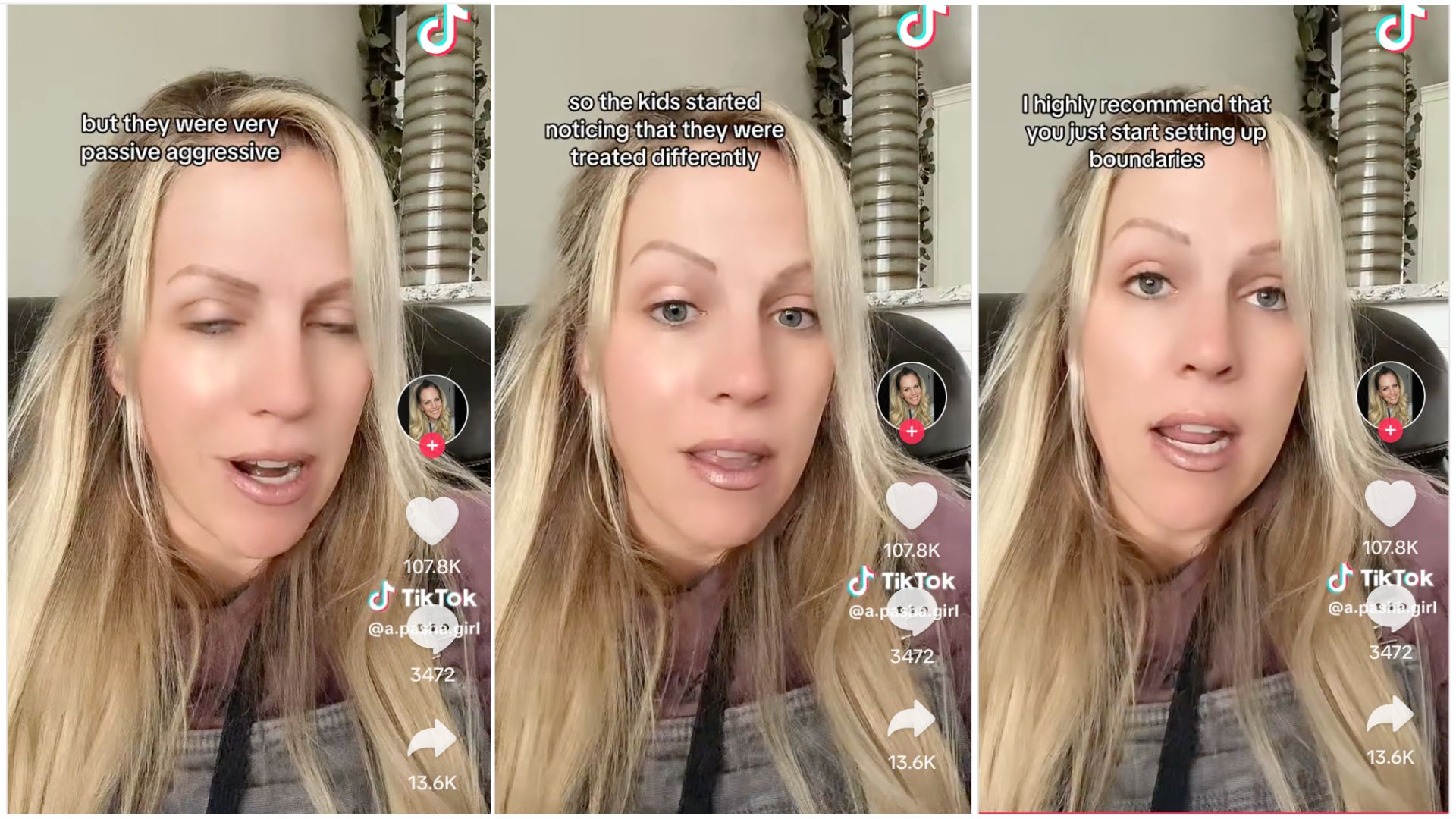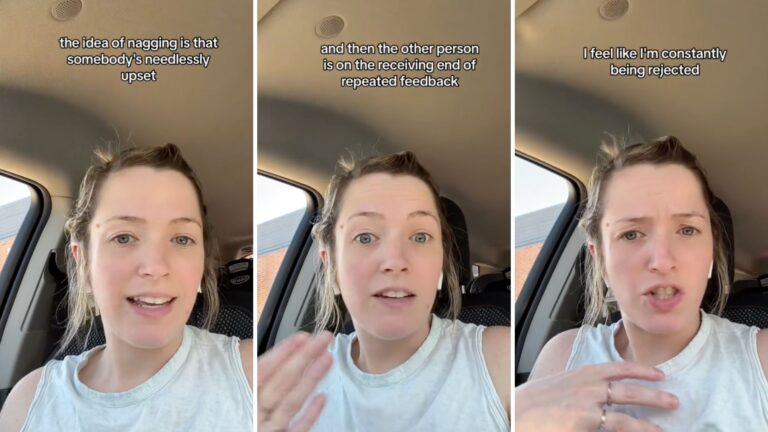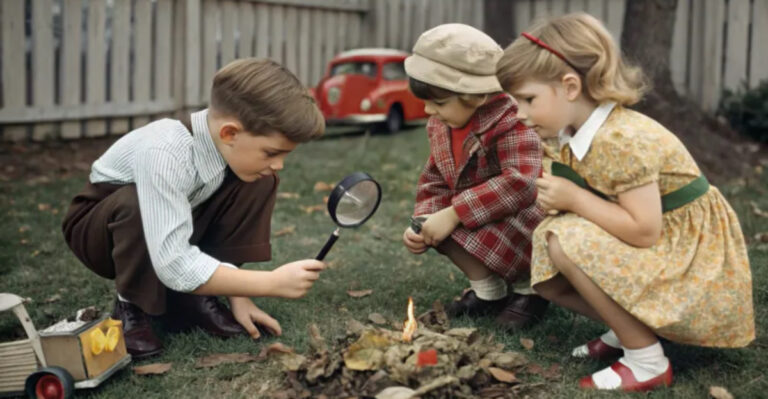Pregnant Woman Forbids Family Members Who Don’t Like Her To Have Contact With Her Children
One day I was quite upset because I overheard some awful comments my mother-in-law had made about me. She was speaking to her friend on the phone and didn’t realize I had entered the room and was standing behind her the whole time.
I had no idea she despised me that much and was shocked to find out. Then I felt confused because she said she loved her grandchildren so much while at the same time hated the woman who gave birth to them. I mean how?!
Soon after I came across a post on TikTok about this kind of topic. A young soon-to-be mom, named Tyler, shared her thoughts and emotions regarding specific relationship issues.
“You openly despise me!”
Tyler started talking in a fairly irate tone, with an energetic gesticulation. The third-semester-belly was quite visible in the frame, too. She continued giving in-depth perspectives of imaginary relationships with family, friends, or anyone basically:
“You call me names and you put me down. You don’t support me. You want nothing to do with me… You just don’t like me, and you let me know you don’t like me.”
The body language made it obvious Tyler was hurt but she didn’t want to point her finger to anyone specific. She underlines her words (sadly!) can be applied to anyone: be it a stranger on the street or a close family member. Then she continues why their standpoint has absolutely no sense!
“You let other people know. And at the end of the day, you still feel as though, regardless of how you treat me… regardless of the relationship, or no relationship, that we have, you still think you should go around that nasty relationship you’ve developed with me, and still be able to have access to my children.”
“And you want to be close to my kids? No way!”
The way moms react to disrespectful behavior has changed, and it doesn’t matter where or from whom the behavior comes.
“Regardless of your relationship with somebody — regardless if you are a grandma, a grandpa, a great grandma, a great grandpa, an aunt, uncle, brother or sister — you have no entitlement in life, and I’m sorry if that’s how you old school people grew up, but that is not how we roll now.”
Offering an imaginary scenario where she and her friend Savannah had some disagreements and called each other names, she put things into perspective and I could see the point:
“she said something nasty about me, or I didn’t like something she did, but I still expect to be able to see her child, hang out with her child, have access to her child, be alone with her child.”
Her reasoning behind the fact she’d set boundaries for family members who openly disliked her was something I could strongly identify with:
“You do not have any entitlement over my children. I don’t care what your relationship is, what you think it is, to my child. If you disrespect me and you don’t appreciate me, and you don’t want to work on a relationship with me, you’re not gonna go around me as the mother and have access to my children.”
“Regardless of the disrespect my husband’s family was giving me, I allowed access to my children and this is what happened.”
Another woman, A Pasha Girl, responded with her story. She explained that her husband’s family didn’t like her from the beginning.
The kids wouldn’t notice it at first, but at the ages of 4 or 5, it became apparent. They would notice they don’t get the same treatment as other cousins whose moms were liked and accepted.
“If you think that someone doesn’t like you, that they’re going to treat your children the same as somebody they do like, you couldn’t be farther from the truth.”
She further explained they all tried counseling, the kids, the parents, and the husband’s family. As there was no way to fix things up, the only thing left to do was set up boundaries. They also chose to skip attending family gatherings but the family was not happy with it.
“Now that people who don’t like us are mad at us for setting up those boundaries and it’s not because they wanna hang out with us, they don’t invite us to their houses for dinner, they’re not engaging with us, but it doesn’t look good.”
Pasha girl explained why it’s so important to stop getting involved and step back:
“We stopped playing the game and we just quit going. And I will say that the best thing we ever did for our family was to stop, to put up those boundaries, and just stop. If you don’t want us, you don’t like us, it is so much better to just stop.”
At one point I was unable to understand if that was really necessary, but when she described the impact that toxic relationships can have on children, I felt so sad and mad at the same time. I understood why she had to build a wall between them.
“So your kids are so involved in this game but they don’t have the emotional or intellectual capacity or development to understand the game that these adults are playing, and so what do kids do? What kids do best: everything’s their fault. They can’t figure out why they’re not good enough, what they’re doing wrong, why these people don’t like them, why are they not good enough, why are they being treated different than their cousins, what is going on…”
If you’re wondering if you should try giving them a chance to be close to your kids, even when it’s so apparent they don’t like you, hear what A Pasha Girl has to say about it:
“It’s a lot easier to never open that door than to try fix and repair broken, damaged children.”
The final thought is such an eye-opener. I couldn’t agree more!






